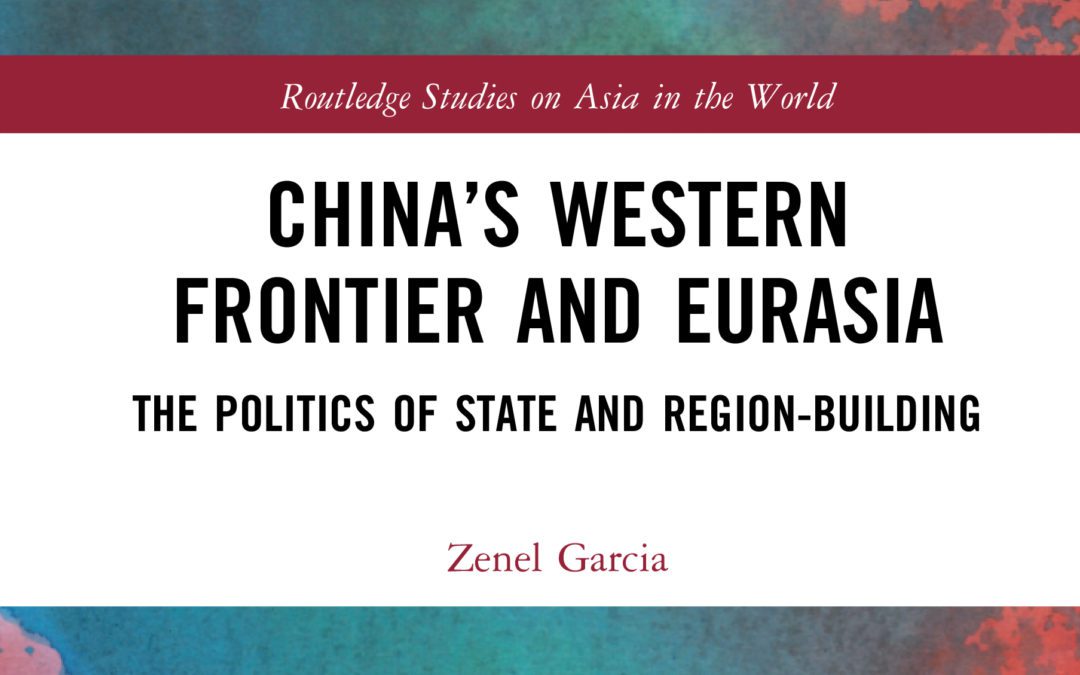The Belt and Road Initiative (BRI) originated in provincial-level efforts that sought to simultaneously integrate interior and frontier provinces to the rest of China as well as neighboring countries during the 1990s.


The Belt and Road Initiative (BRI) originated in provincial-level efforts that sought to simultaneously integrate interior and frontier provinces to the rest of China as well as neighboring countries during the 1990s.
Following on my last point which tried to understand the logic of ISIS's role (if indeed it is responsible) in the bombing of a Russian charter plane int he Sinai, let's turn our attention to the...
A long, long time ago, before I became a professor and even before I went to graduate school for my doctorate, I worked for a few years in the defense community. I was a Defense Analyst for the...

In late May, the People’s Republic of China (PRC) released a white paper on China’s Military Strategy. This public release is the first of its kind, and it has received relatively little attention...
Here are part one and part two of this post. I spoke last Tuesday at a USC-CSIS conference on Korean unification. I learned a lot, and it was very good. If you’re interested in unification, start here with the primary report on which the conference was based. The principal investigators said a final wrap-up report will come at some point, and I’ll put up that link when it arrives. My comments below are on the papers presented on Tuesday about neighboring states’ reactions to Korean unification. These papers aren’t publicly posted yet, so all the comments might not make sense. But in the...
Good morning, Mr. and Mrs. America and all the ducks at sea! China The New York Times reports Western studios are giving Chinese censors early access to their films. Wikipedia's background on Chinese film censorship. Alyssa Rosenberg discussed this in June. Some Chinese directors don't like censorship Some in Taiwan are suspicious of cross-strait media deals More traditional censorship of Chinese media persists (more, more) But the media can now report on (appalling) air quality and the government might be seeking to reduce air pollution And Dan Drezner updates on China's non-leverage via...
Quite a weekend, the opening of Zero Dark Thirty in the U.S. reminding everyone of the interventionist elements of the Obama Doctrine (see my next post) and a full-fledged French intervention in Mali, not to mention U.S. assistance with a French hostage liberation operation tucked away on the inside pages. Washington, D.C. is a funny place these days...all but two of the think tanks here are obsessed with the rise of China and just about the entire U.S. foreign policy establishment is choking on economic austerity and therefore fully inclined to doubt that our government or any other can...
About a year ago I introduced an ocasional series called "Quarter-Baked Ideas." The idea was to blog about semi-formed thoughts related to international affairs. The whole notion turned about to be quarter-baked: I haven't done another one until now. Do rising powers have an intrinsic advantage in "flexibility" when compared to dominant ones? The answer to this question matters a great deal, I submit, to debates over the persistence and decline of hegemonic orders. As I've alluded to before, there's a curious blindspot in mainstream hegemonic-order theory. On the one hand, hegemonic-order...
REK: I am pleased to guest-post my friend Dave’s longer, fuller version of a book review he wrote for CSIS. My thanks to CSIS as well. If you aren’t reading Dave yet, I’d recommend it. “Is America listening to its East Asian allies?: Hugh White’s The China Choice” David C. Kang For all the recent attention on increasing tensions between the U.S., China, and East Asian countries, regional balance of power dynamics remain muted. The past few years have seen increased Chinese assertiveness, which has led many to expect that East Asian states will flock to the side of the U.S. This has not...
The often maligned aspiration for a "Concert of Asia" appears to be even more unlikely this year as Japan and China trade barbs at the UN and spray water cannons at each other over the Senkaku/Diaoyu Islands in the East China Sea. Meanwhile in Southeast Asia, China has succeeded in fracturing the unity of ASEAN ministers over disputed territorial claims in the South China Sea. Even though these conflicts are unlikely to lead to war, the disputes matter because they influence whether the region will become increasingly bi-polar or whether an international institution/society will be...
Who will win in a world of .... LASER CATS andhegemonic stability theory?In an interesting thought experiment at Foreign Policy, James R. Holmes (an associate professor at the Naval War College) asks whether China could take Japan on the high seas.In July, China's East Sea Fleet conducted an exercise simulating an amphibious assault on the islands. China's leaders are clearly thinking about the unthinkable. And with protesters taking to the streets to smash Japanese cars and attack sushi restaurants, their people may be behind them. So who would win the unlikely prospect of a clash of titans...
Phil Arena has been playing around with alternative measures of military power. He begins with the straightforward observation that one current and popular measure of military power, the CINC scores in the Correlates of War project, list the United States as having fallen behind the People's Republic of China in its military capability. As Phil writes, this is not a conclusion that most, if any, observers of world politics would endorse--and that even if it is true in the broadest sense (that in some total war between the United States and the PRC, the United States might not be able to...